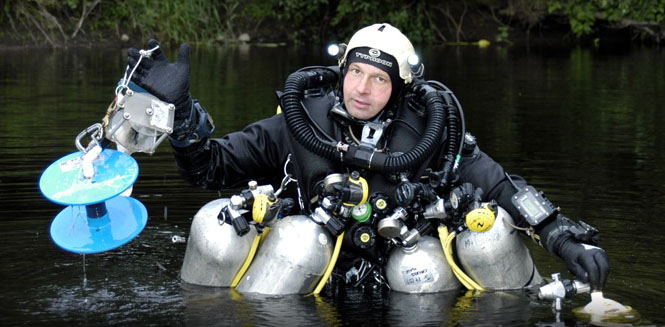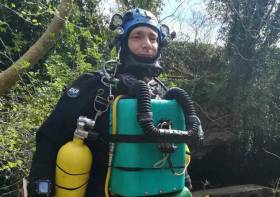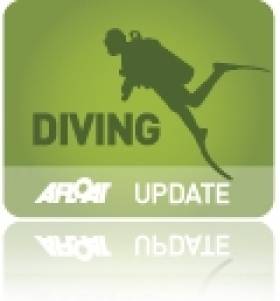Displaying items by tag: cave diving
Search Resumes for Missing Cave Diver in Co Clare
A multi-agency search resumed at the weekend for a cave diver missing in Co Clare since the beginning of the month.
The missing man is believed to have gone exploring sea caves at the Bridges of Ross on the Loop Peninsula on Tuesday 3 May, according to the Irish Examiner.
Specialist divers have joined the search party, as the Clare Champion reports, but the poor weather forecast for the rest of the week may hamper their efforts.
Irish Water Safety Honours Clare-Based Thai Cave Rescuer
#Diving - Irish Water Safety has honoured cave diver Jim Warny for his role in the rescue of the Thai football team earlier this year.
Warny also gave a presentation on the Tham Luang rescue operation at the IWS conference in Athlone’s Hodson Bay Hoetl yesterday (Saturday 20 October).
Twelve boys aged 11 to 17 and their 25-year-old assistant coach were rescued in early July after being trapped in the northern Thailand cave system for 18 days.
As previously noted on Afloat.ie, Ennis-based Warny was one of the Irish connections in the multinational rescue effort.
And he was one of the many expert divers who carefully guided the boys and their coach out of the 4km of twisting passages and flooded sections in total darkness.
IWS presented Warny with the Seiko ‘Just In Time’ Rescue Award for his contribution to that remarkable humanitarian achievement.
As the Irish Post reports, Warny is teaming with a film producer on a dramatisation of his experience in Thailand as well as cave diving closer to home.
Efforts Resume to Recover Body of Cave Diver
Efforts are resuming today to recover the body of a Polish man who died while cave diving near Gort in Co Galway.
The Irish Independent reports that Artur Kozlowski, 34, failed to emerge as expected from the flooded cave he was exploring solo on Monday afternoon.
His body was located yesterday evening by rescuers in the deepest section of the cave, 52m below the surface.

Cave Diver Artur Kozlowski
Kozlowski - known to friends as Artur Conrad - had been living in Ireland for several years and was regarded as one of Ireland's most experienced cave divers. He was previously highlighted on Afloat.ie for his lecture on cave diving at NUI Galway late last year.
He was also the holder of a number of diving records in the UK and Ireland, including longest and deepest traverse of a cave at 103m.
He had spent the last two years exploring the subterranean cave network in south Galway, and was on the final day of an expedition this week when tragedy struck.
Friend and diver Jim Warney, who found Kozlowski, said it took an hour to locate the body in a narrow passage. His oxygen tanks - which were known to have enough air for at least six hours - and a guide rope were still attached.
Rescuers have requested assistance from a UK dive rescue team to help recover the body.
The Irish Independent has more on the story HERE.





























































